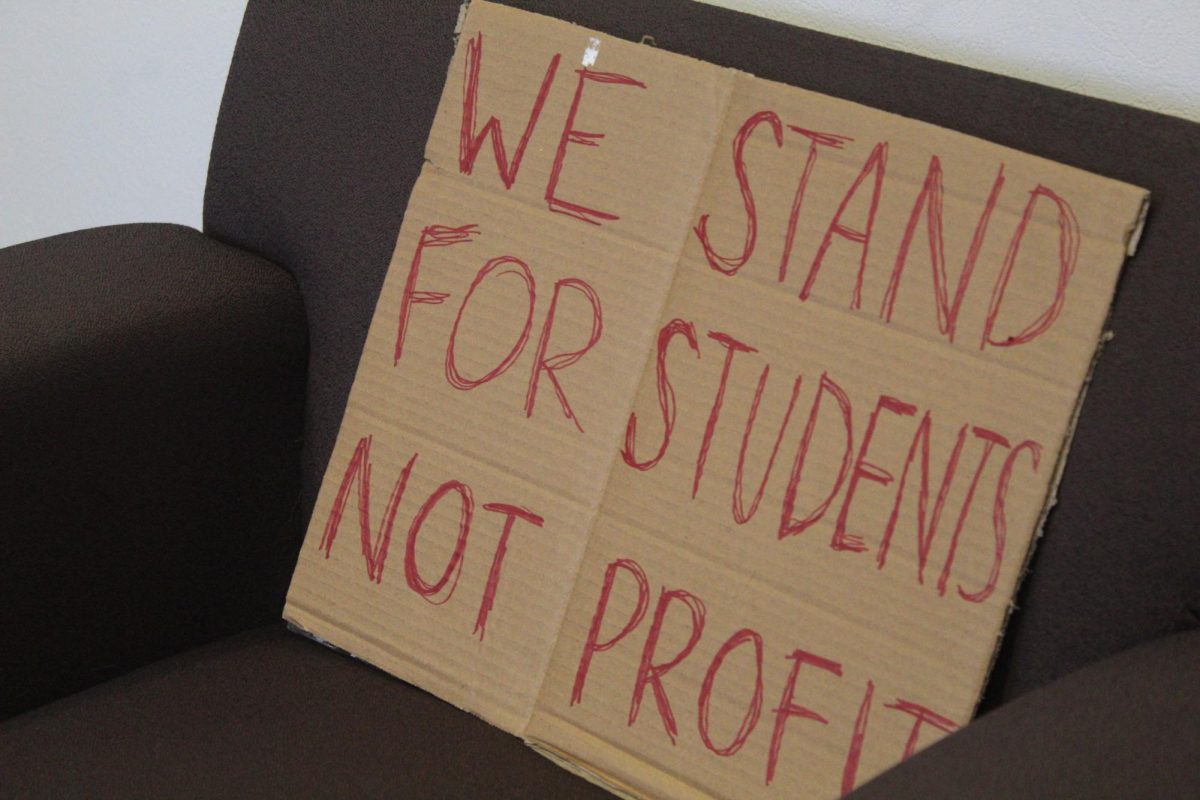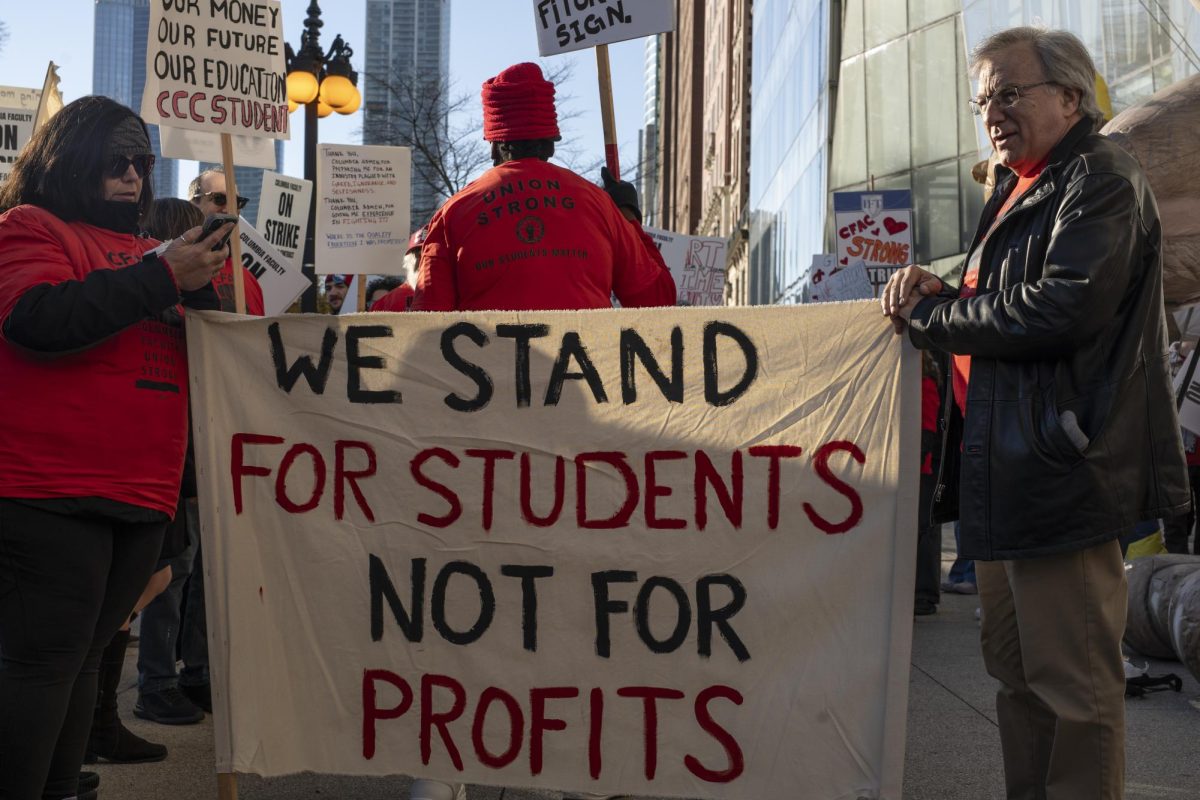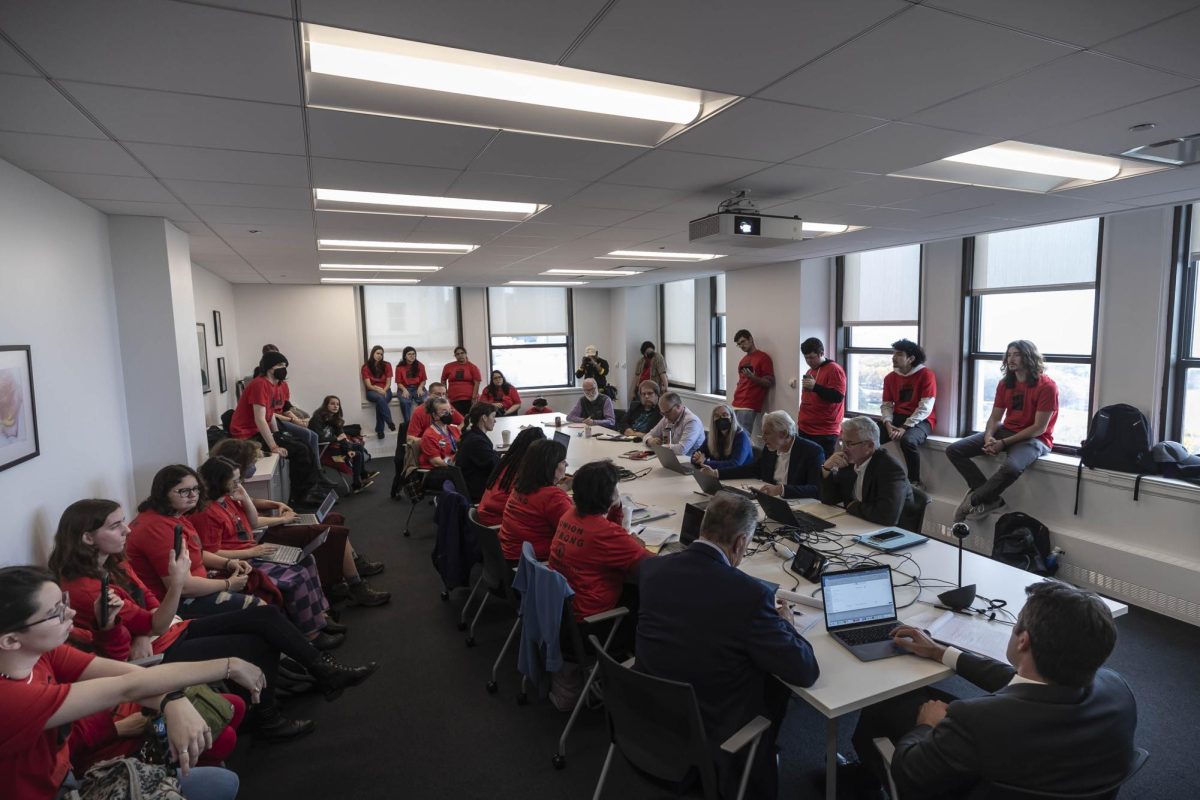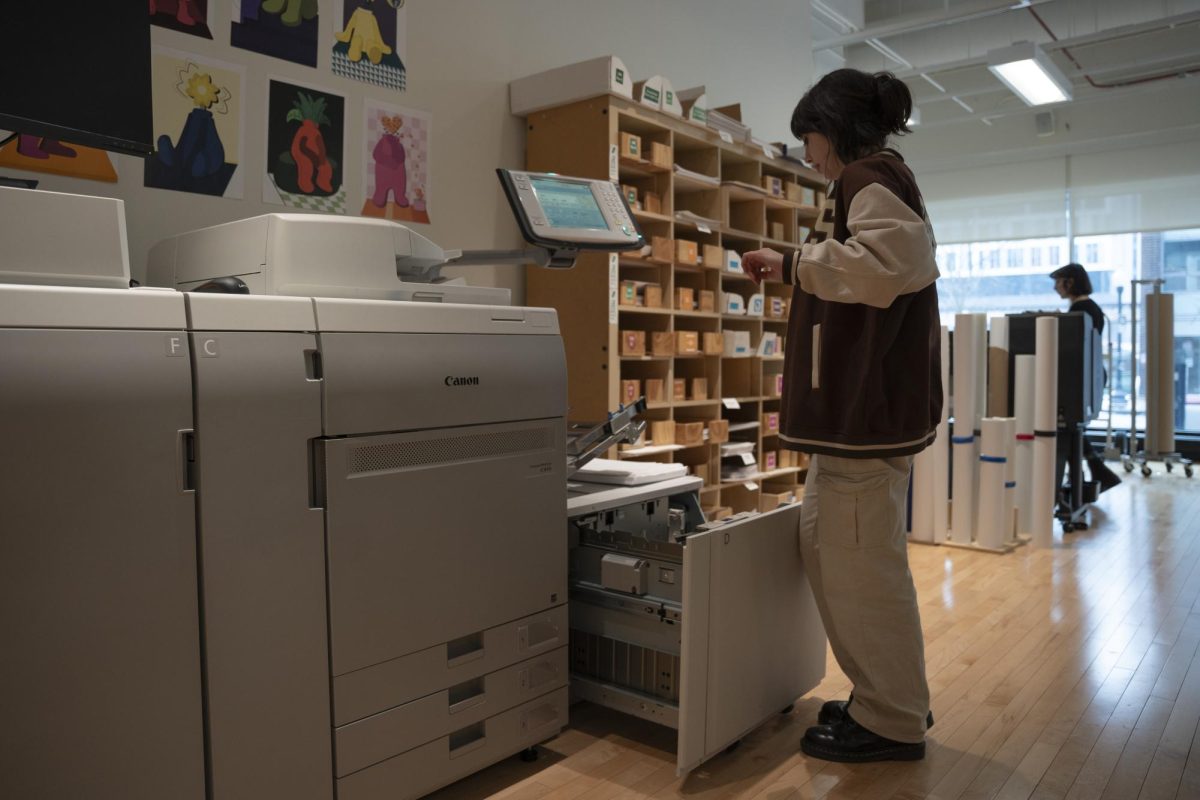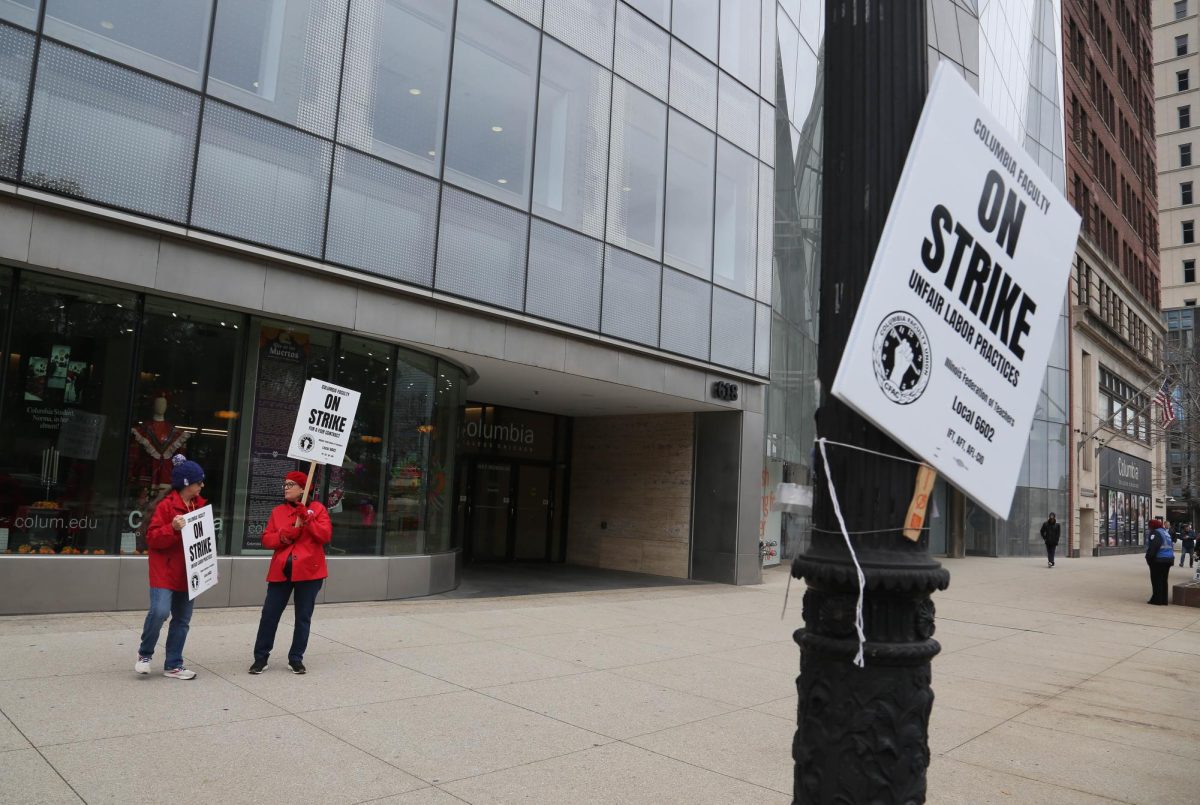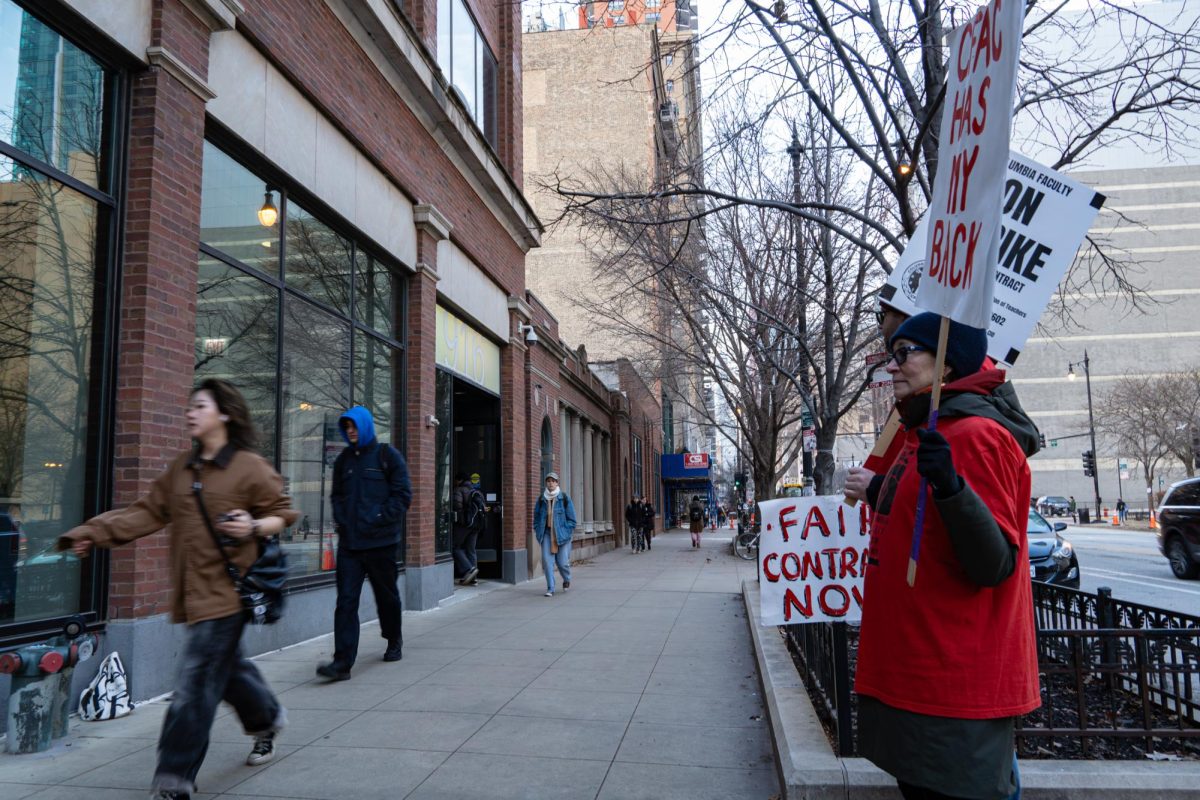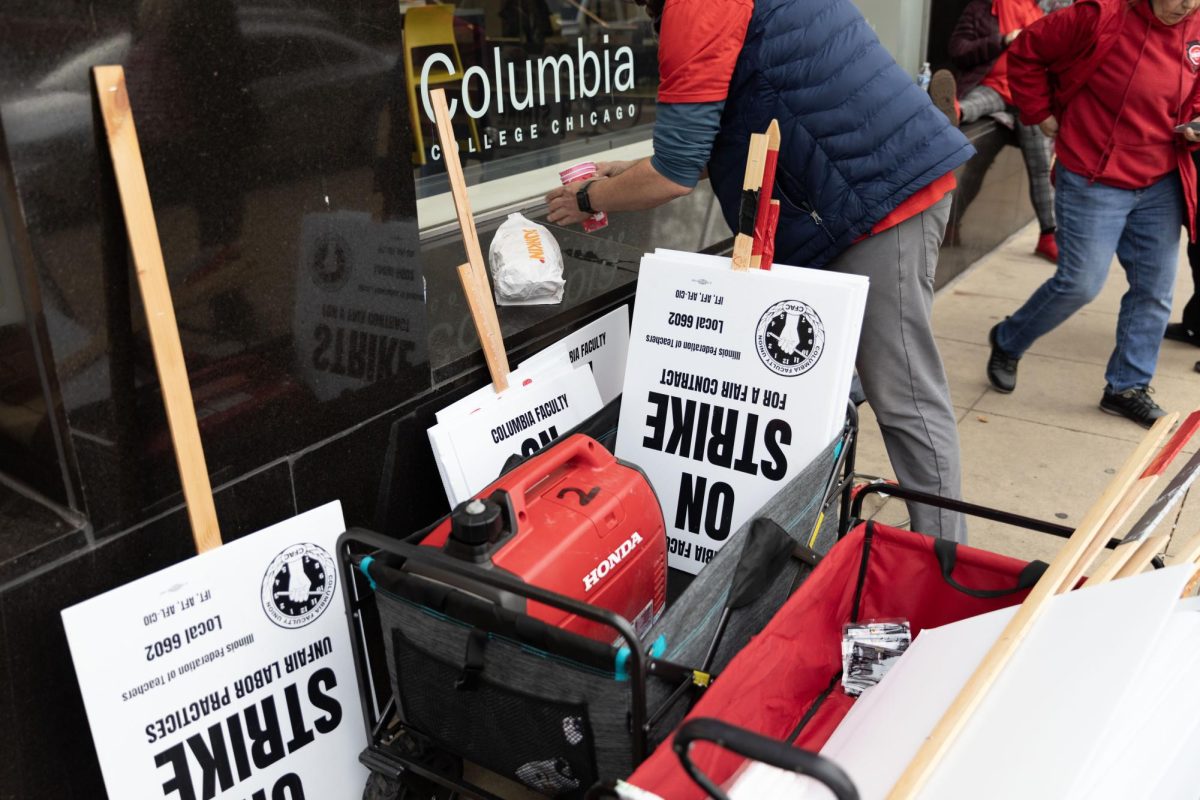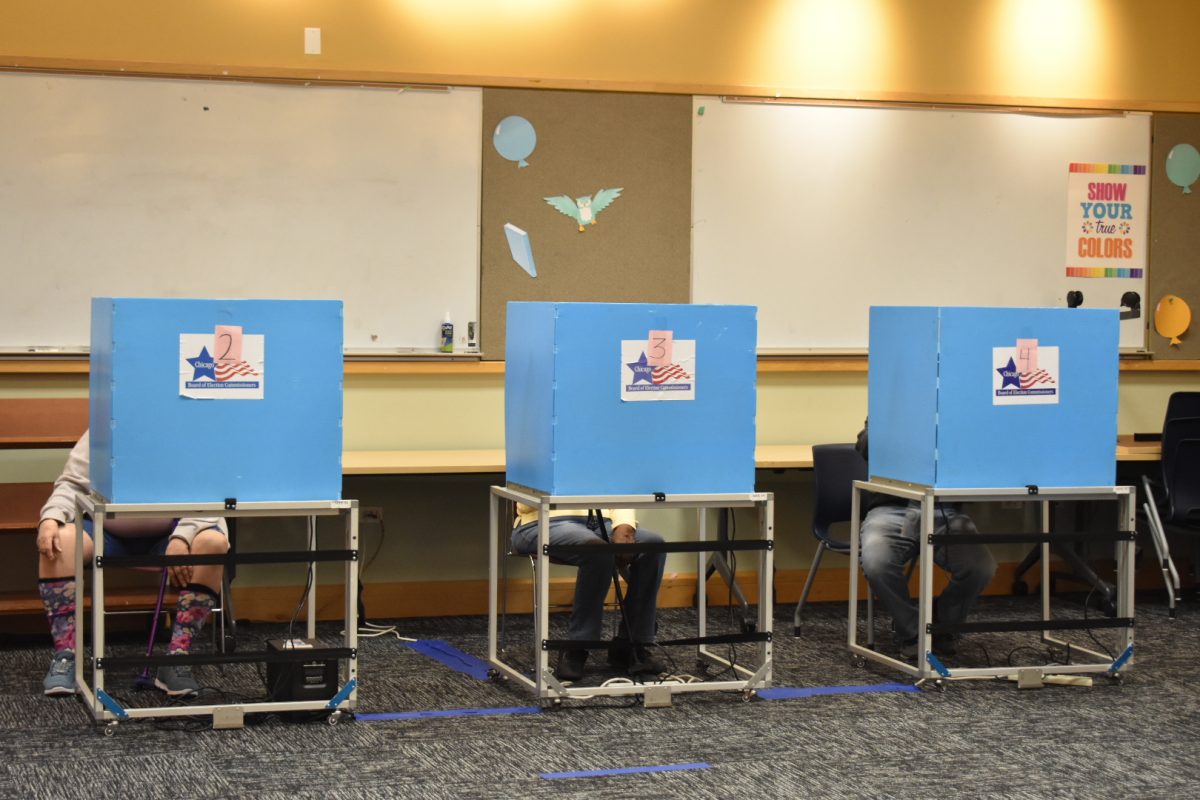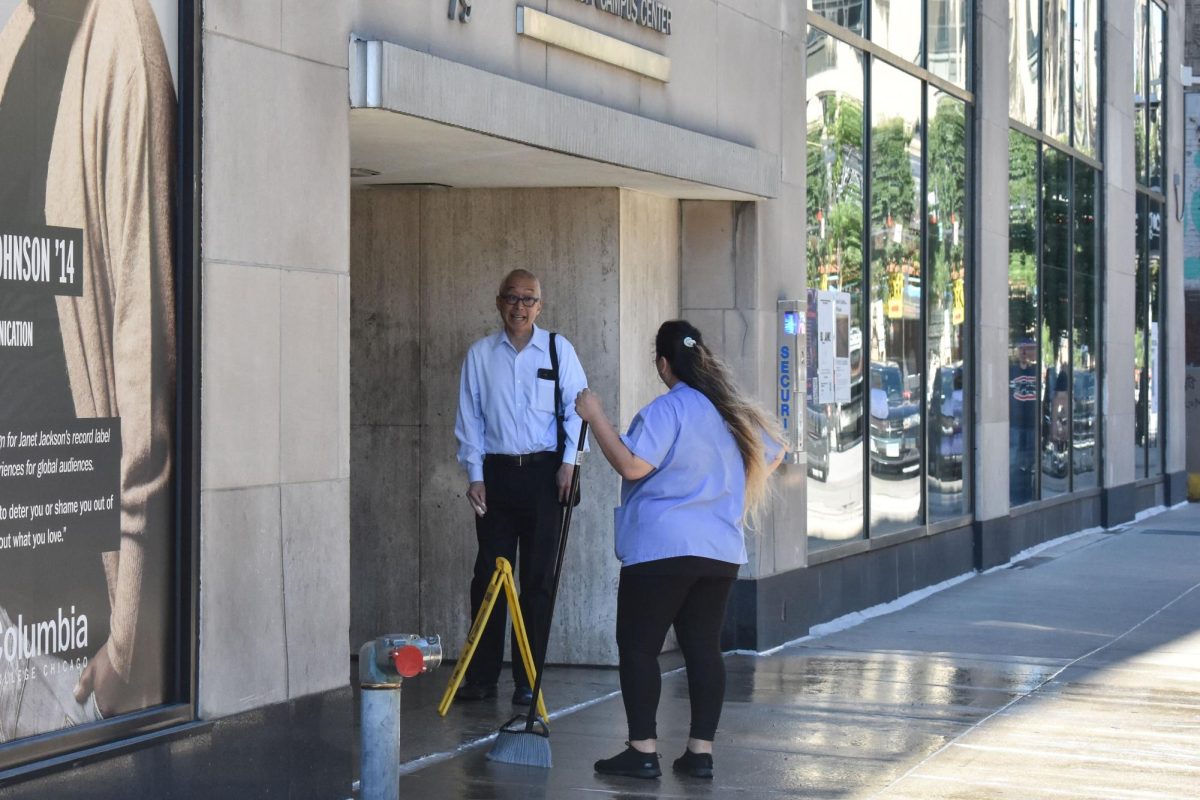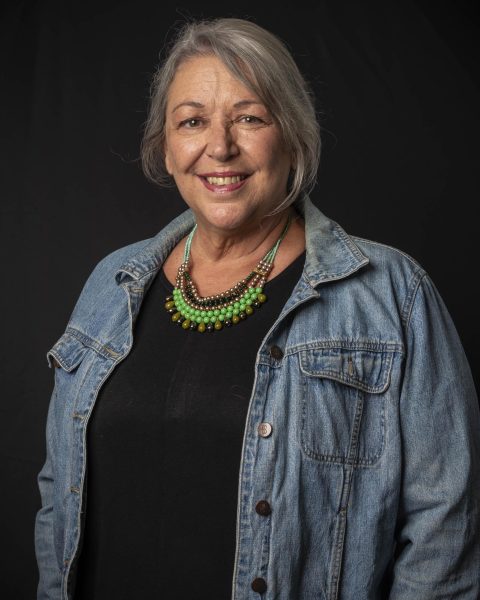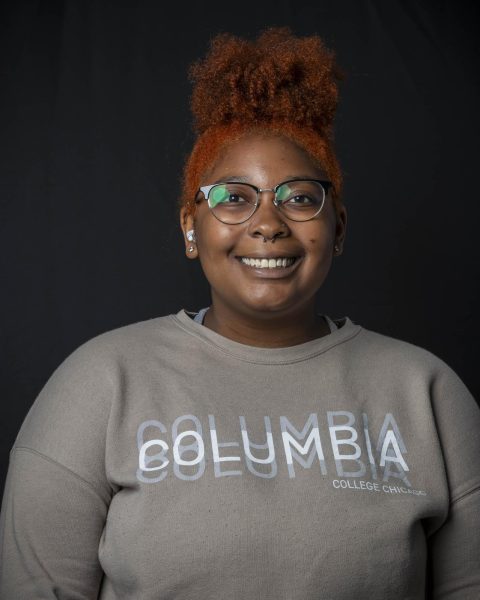Approximately 20 students gathered in the small second floor reading room of the Columbia College Library at the 624 S. Michigan Ave. building on Friday, Nov. 17 to organize student-centered demands around the strike.
Responding to a flyer from COLUMPROTEST, an Instagram account with more than 1,200 followers, students who showed up for the event said they are frustrated with the administration and want to get back into the classroom.
The union has been on strike since Monday, Oct. 30, and this week the college asked for a federal mediator as contract negotiations stalled.
Hundreds of classes have been canceled each day since the strike started three weeks ago.
“It’s been rough. It’s been really rough, especially the last couple weeks,” said sophomore photography major Angel Avellaneda, who is from Maryland.
One of her major classes, “Photographic Practice 1,” has a part-time instructor and has not been meeting.
“I haven’t really been able to do any of my artwork,” Avellaneda said. “I had a lot of trouble last semester with finances. I have split parents and not a lot of financial stability and am far from home.”
Tanner Alanis, a sophomore traditional animation major, said they side with Columbia College Faculty Union and don’t trust the administration, which they accused of “distorting this narrative.”
As students, “it’s also important that we have our own organization to say that we are also a group that is affected,” Alanis said. “We have our own voice and our own issues that are outside of CFAC.”
The group is not an officially recognized student organization, according to Allen Lucas, Columbia Coordinator of Student Organizations.
It has asked for:
- A tuition decrease and/or freeze due to the lack of classes and uncertainty of where the college stands
- Full transparency of administrative decisions that affect students.
- Opportunities for students to voice their feedback in an unbiased manner.
- Culture and sensitivity training and more opportunities for POC students.
- Required DEI programs/external resources to help enforce this standard.
The students who met on Friday said they don’t feel there is a way to communicate their concerns with the administration.
Jenna Davis, a vice president of communications for the Student Government Association, said students should seek out the elected senators from their departments or community on campus. SGA hosted their annual “Let’s Chat” event on Thursday, Nov. 16 with President and CEO Kwang-Wu Kim and members of his administration.
SGA meetings are held every week and open to all students. “SGA is here for students in order to make change on campus,” Davis said.
For its part, COLUMPROTEST is asking for the decrease or freezing of tuition rates to make Columbia more affordable.
“A tuition freeze is really important,” Alanis said. “While raising tuition, they’re actively taking away our resources, like cutting back hours at the art studio, cutting back hours for student workers and pay for student workers and cutting classes. Why ask for so much more money when you’re taking away so much of our resources?”
One big reason they and their family chose Columbia was the ability to take classes across a student’s major, said Alanis, who is from Arlington, Texas.
Alanis’ parents are very disappointed and encourage Alanis to look at other colleges.
“I am transgender, and I’m from Texas,” Alanis said. “I can’t go back to Texas. My family is supportive, but the state is very much not. It’s illegal to be transgender from where I am and very unsafe. This is my home now.”
Avellaneda said as an artist, smaller classes are very important. “We were promised that,” she said, adding that she has ADHD, anxiety and depression.
In critique classes, it is particularly important for a teacher to be hands-on.
“As a photography student, my teacher goes through and helps us fix a lot of problems with our cameras or certain softwares,” Avellaneda said.
Avellaneda’s class sizes for Spring 2024 are around 25 students each, but she could not get into a photo class she wanted, which makes her depressed, she said.
Damian Cutler, a first-year film and television major, is frustrated but wants students to use their voices to make demands.
“The student body needs to be out here and present and making their voice heard because at the end of the day, a united front is the hardest to combat,” Cutler said.
“The solidarity between students and faculty is what’s going to make a difference in this institution.”


